The views expressed in our content reflect individual perspectives and do not represent the authoritative views of the Baha'i Faith.
The Hebrews, the first Middle Eastern people to embrace one monotheistic God, understood Him as loving and benevolent—and involved in their lives in an immediate sense.
The Hebrew prophets presented a dichotomy of God’s disownment and punishment on the one hand, with His love and promises of redemption on the other. The book of Hosea makes this clear.
To place the prophet Hosea in Israelite history, it helps to understand that the united kingdom of Israel, reigned over by Saul, David, and Solomon, had split into the divided kingdoms of Israel and Judah by approximately 930 BCE. This happened early in the rule of Solomon’s son, Jeroboam I, who then ruled Israel while Rehoboam ruled Judah.
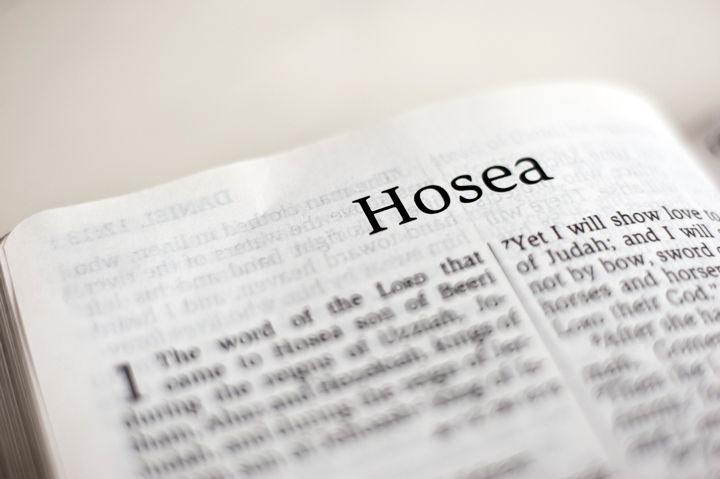
Hosea’s long ministry in Israel began about two hundred years later, from the mid-730s to the early 720s BCE. The Assyrians conquered Israel in 722, deporting so many of its inhabitants throughout the Assyrian empire that no further mention of the ten tribes of Israel was made in the Hebrew Bible.
In his chapter in the Hebrew Bible, Hosea 1:1 places him in the times of several Hebrew kings, whose reigns spanned several decades:
The word of the Lord that came to Hosea son of Beeri during the reigns of Uzziah, Jotham, Ahaz and Hezekiah, kings of Judah, and during the reign of Jeroboam son of Jehoash king of Israel.
Hosea—the only classical prophet native to the kingdom of Israel—preached against the socioeconomic abuses at grave odds with the Mosaic teachings. His prime target were the priests and false prophets who aided and abetted religious hypocrisy:
You stumble day and night, and the prophets stumble with you. – Hosea 4:5.
And it will be: Like people, like priests. I will punish both of them for their ways and repay them for their deeds. – Hosea 4:9.
As marauders lie in ambush for a victim, so do bands of priests; they murder on the road to Shechem, carrying out their wicked schemes. – Hosea 6:9.
The more priests there were, the more they sinned against me; they exchanged their glorious God for something disgraceful. They feed on the sins of my people and relish their wickedness. – Hosea 4:7–8.
Hosea recognized Assyria as God’s instrument of chastisement to the Israelites. Assyrian soldiers were stationed just across the border, waiting for the order to invade. Hosea prophesied that the faithlessness of the people would be the cause of their defeat: “The people of Samaria must bear their guilt, because they have rebelled against their God. They will fall by the sword …” – Hosea 13:16.
A Marriage Metaphor
The first instruction Hosea received, recorded in Hosea 1:2, was, “Go, marry a promiscuous woman and have children with her, for like an adulterous wife this land is guilty of unfaithfulness to the Lord.”
The book of Hosea states that he subsequently married such a woman named Gomer, and the first three chapters of the book are devoted to the resultant metaphor—that Israel and its peoples are like an unfaithful spouse. In the book of Hosea, raw emotions of outrage, distress, and betrayal burst forth because the Israelites of God’s covenant with Moses had prostituted themselves with idolatry and other sins.
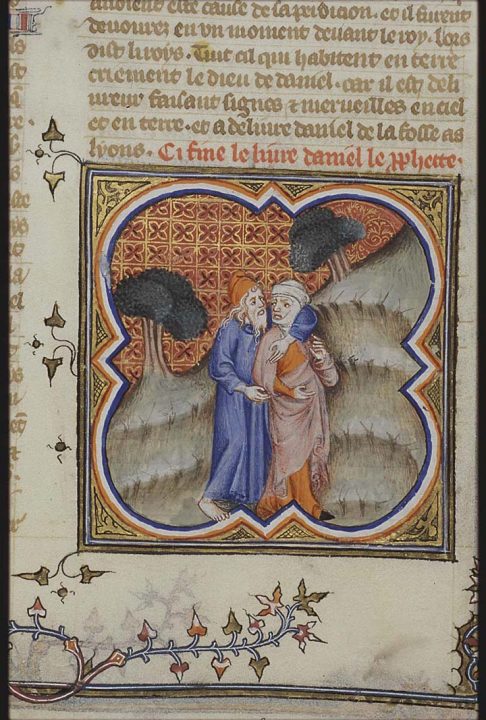
Gomer falsely believed that it was her lovers––the gods of idolatrous worship––who gave her food, water, wool, linen, olive oil, and drink. So in Hosea’s symbolic telling, God blocked her path with thorn bushes, walling her in so that she could not find her way to them:
She will chase after her lovers but not catch them; she will look for them but not find them. Then she will say, ‘I will go back to my husband as at first, for then I was better off than now.’ She has not acknowledged that I was the one who gave her the grain, the new wine and oil, who lavished on her the silver and gold—which they used for Baal. – Hosea 2:7‒8.
After expressing God’s pain and anger with Israel, Hosea revealed the divine plan to lure Israel back:
Therefore I am now going to allure her; I will lead her into the wilderness and speak tenderly to her. There I will give her back her vineyards, and will make the Valley of Achor a door of hope. There she will respond as in the days of her youth, as in the day she came up out of Egypt. – Hosea 2:14–15.
Achor, the name of the valley located halfway between Jerusalem and the north shore of the Dead Sea, translates from Hebrew as “trouble.” Akka, also called Akko and Acre, later became the prison city in Palestine to which Baha’u’llah, his family, and some of his followers were exiled by the Ottoman government. Baha’u’llah wrote:
The Apostle of God―may the blessings of God and His salutations be upon Him―is reported to have said: “Blessed the man that hath visited Akka, and blessed he that hath visited the visitor of Akka.”
In a tablet included in Selections from the Writings of Abdu’l-Baha, Abdu’l-Baha referred to Hosea’s door of hope as the prison city of Akka: “It is recorded in the Torah: And I will give you the valley of Achor for a door of hope. This valley of Achor is the city of Akka …”
When Shoghi Effendi wrote about Baha’u’llah’s exile to Akka in his book God Passes By, he also referenced Hebrew scriptures that foresaw Baha’u’llah’s exile, including the meaning of Hosea 2:15:
Indeed such a consummation [Baha’u’llah’s exile from Persia that ended in Akka], He assures us, had been actually prophesied “through the tongue of the Prophets two or three thousand years before.” God, “faithful to His promise,” had, “to some of the Prophets” “revealed and given the good news that the ‘Lord of Hosts should be manifested in the Holy Land.’” Isaiah had, in this connection, announced in his Book: “Get thee up into the high mountain, O Zion that bringest good tidings; lift up thy voice with strength, O Jerusalem, that bringest good tidings. Lift it up, be not afraid; say unto the cities of Judah: ‘Behold your God! Behold the Lord God will come with strong hand, and His arm shall rule for Him.’” David, in his Psalms, had predicted: “Lift up your heads, O ye gates; even lift them up, ye everlasting doors; and the King of Glory shall come in. Who is this King of Glory? The Lord of Hosts, He is the King of Glory.” “Out of Zion, the perfection of beauty, God hath shined. Our God shall come, and shall not keep silence.” Amos had, likewise, foretold His coming: “The Lord will roar from Zion, and utter His voice from Jerusalem; and the habitations of the shepherds shall mourn, and the top of Carmel shall wither.”
Akka, itself, flanked by the “glory of Lebanon,” and lying in full view of the “splendor of Carmel,” at the foot of the hills which enclose the home of Jesus Christ Himself, had been described by David as “the Strong City,” designated by Hosea as “a door of hope,” and alluded to by Ezekiel as “the gate that looketh towards the East,” whereunto “the glory of the God of Israel came from the way of the East,” His voice “like a noise of many waters.”
Hosea’s Valley of Achor might also symbolize today’s troubled humanity—and this door of hope its redemption through Baha’u’llah’s teachings of unity and peace.


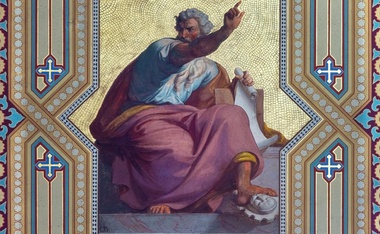



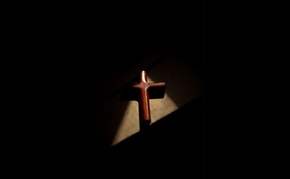
![[God] hath made woman and man to abide with each other in the closest companionship, and to be even as a single soul. They are two helpmates, two intimate friends, who should be concerned about the welfare of each other. If they live thus, they will pass through this world with perfect contentment, bliss, and peace of heart, and become the object of divine grace and favour in the Kingdom of heaven. But if they do other than this, they will live out their lives in great bitterness, longing at every moment for death, and will be shamefaced in the heavenly realm. Strive, then, to abide, heart and soul, with each other as two doves in the nest, for this is to be blessed in both worlds. – #AbdulBaha #Love #Marriage #Companionship #BahaiFaith
(Selections from the Writings of ‘Abdu’l-Bahá, paragraphs 92.1–92.3)](https://media.bahaiteachings.org/sb-instagram-feed-images/487782836_18497319871023335_4819806972653811469_n__v284x284__.jpeg)






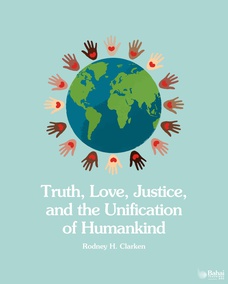


Comments
Sign in or create an account
Continue with Googleor